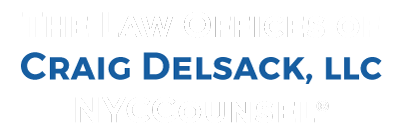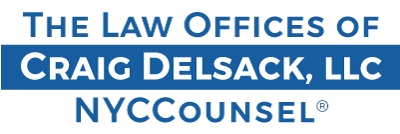Protect Your Business: Essential New York Employment Laws

Labor and employment laws can differ from state to state, and also from city to city, as the case may be. The public policy reasons for the existence of employment laws and labor laws are multifaceted and aim to achieve several goals:
- Protecting worker safety and health.
- Ensuring fair wages and hours.
- Preventing discrimination and harassment.
- Protecting workers’ rights to organize and bargain collectively.
- Providing benefits and protections for workers.
Businesses have to comply with all applicable laws and regulations. Below is a compilation of some of the key provisions of New York States’ and New York City’s employment laws, which apply to most business owner’s in New York State and New York City.
Minimum Wage
Currently, 34 states, territories, and districts have minimum wages above the federal minimum wage of $7.25 per hour. States with their own hourly wage requirements may exceed this rate. However, employers specifically covered by the Fair Labor Standards Act (FLSA) must adhere to the federal minimum wage.
On January 1st of 2024, the hourly minimum wage rate became $16 per hour in New York City, Nassau, Westchester counties, and Suffolk. The rest of New York state is at $15 per hour. These rates will increase by 50 cents annually for the next two years. commencing January 1, 2027, the New York minimum wages will be adjusted annually based on the CPI (Consumer Price Index).
Overtime Exemption Thresholds
Employees may be “exempt” from being covered by the FSLA and New York State minimum wage and overtime law provisions. In New York State, an “exempt” employee in 2025 is an administrative, professional, or executive employee who meets certain salary and duties tests:
Salary. In New York City and Nassau, Suffolk, and Westchester counties, the minimum salary for exempt employees will be $1,237.50 per week, or $64,350 per year, starting January 1, 2025. In the rest of New York State, the minimum salary will be $1,161.65 per week, or $60,405.80 per year.
Duties. Exempt employees must perform executive, administrative, or professional tasks. They may also:
- Direct the work of at least two full-time employees,
- Manage an enterprise or a department or subdivision of an enterprise, or
- Have the authority to hire and fire employees.
Exempt employees are not entitled to overtime pay because they are exempt from the FLSA overtime regulations. Nonexempt employees are typically paid hourly and are entitled to overtime pay for any hours worked beyond 40 in a work week.
To qualify as an exempt employee, the employee must also be paid on a salary basis, which means they receive the same amount of pay in their paycheck every pay period.
Pay Transparency Law
Effective September 17, 2023, the New York State’s pay transparency law requires New York state businesses with a minimum of four employees to disclose the range of compensation offered for job opportunities, promotions, and transfers. This applies to jobs performed in New York and those reporting to a supervisor or office in New York State. Employers must include the minimum and maximum salary or hourly wage in job postings for positions that can or will be performed in New York. This includes internal promotions and transfer opportunities. Employers must disclose if a position is commission-based. The law also prohibits employer retaliation for open discussion of compensation between coworkers.
Freelance Isn’t Free Act
Effective August 28, 2024, New York State’s “Freelance Isn’t Free Act” (“FIFA”)began protecting independent contractors working in New York State who do business with private-sector parties. FIFA defines “freelance worker” broadly as “any natural person or organization composed of no more than one natural person, whether or not incorporated or employing a trade name, that is hired or retained as an independent contractor by a hiring party to provide services in exchange for an amount equal to or greater than $800, either by itself or when aggregated with all contracts for services between the same hiring party and freelance worker during the immediately preceding 120 days.” The $800 threshold requirement can be met all at once or over several small-dollar agreements.
The law requires the parties to have a written contract between the hiring party and the independent contractor, including the following essential terms:
- Parties’ names and mailing addresses
- Itemizing all services the freelance worker will provide to the hiring party
- The value of the services to be provided
- The rate and method of compensation
- The payment date and the mechanism to determine such date, and
- The date by which the freelance worker must submit to the hiring party a list of services rendered under the contract (for timely payment)
The payment of compensation must be provided by the due date. If a due date is not specified, the payment must be made within 30 days of the service’s completion (and FIFA bars the hiring party from forcing a freelancer to accept less compensation than originally contracted in order to timely receive their compensation).
Protection From Discrimination. Hiring parties are prohibited from threatening, intimidating, disciplining, harassing, denying a work opportunity, penalizing, or discriminating against a freelance worker for exercising or attempting to exercise any rights under FIFA. Other protections against discrimination remain protected by other laws such as the civil rights statutes.
Recordkeeping. After contracting, the business owner/hiring party must provide a physical or electronic copy of the contract to the freelancer and then must keep a copy of the contract for a minimum of six years. If the business owner fails to retain the agreement, whichever terms the freelancer provides on their contract will be presumed to be the terms that were agreed upon. In the case of alleged law violations, the freelancer has the right to begin private action. Freelancers have two years from the violation to bring a claim for violating the written contract rule and six years for violating the payment rules. Depending on the violations, potential remedies available to freelance workers consist of statutory damages of $250, statutory damages equal to the value of the underlying contract, double damages, injunctive relief, and other remedies.
Consequences for Violating FIFA. The New York Attorney General will investigate any complaints and may bring an action against accused hiring parties for violations. The Attorney General may bring an action to enjoin unlawful practices which may also result in civil penalties of up to $1,000 for a first violation, $2,000 for a second violation, and $3,000 for any subsequent violations. A penalty of up to $25,000 dollars may also be imposed if it is found that the hiring party has a pattern of violations.
Employer’s Access to Employee’s Personal Email and Social Media Accounts Is Prohibited
Assembly Bill A836 prohibits employers from requiring and requesting access to personal electronic communication accounts of potential and current employees. As of March 12, 2024, this law also prohibits employers from requesting job applicants and employees to:
- Disclose their username, password, or other authentication information for accessing their personal account through an electronic communications device.
- Access the employee’s personal account in the presence of the employer; and
- Reproduce photographs, video, or other information from a personal account obtained through prohibited means.
NOTE: This law does not restrict employers from access to nonpersonal accounts that provide access to the employer’s internal computer or information systems nor finding this information through other means. This includes anything available in the public domain, without needing access information. A New York City business lawyer will go over employer and employee rights regarding these matters.
New York City Human Rights Law
The New York City Human Rights Law (NYCHRL) is one of the most comprehensive anti-discrimination laws in the nation. It prohibits discrimination in employment, housing, and public accommodations based on a wide range of protected classes:
Protected Classes Under The Human Rights Law:
- Age
- Immigration or citizenship status
- Color
- Disability
- Gender (including sexual harassment)
- Gender Identity
- Marital status and partnership status
- National origin
- Pregnancy and Lactation Accommodations
- Race
- Religion/Creed
- Height and Weight
- Sexual orientation
- Status as a Veteran or Active Military Service Member
Additional Protections In Employment:
- Arrest or conviction record
- Caregiver
- Credit history
- Pre-employment Marijuana Testing
- Unemployment status
- Sexual and Reproductive Health Decisions
- Salary History
- Pay Transparency
- Status as a victim of domestic violence, stalking, and sex offenses
Additional Protected Classes In Housing:
- Lawful occupation
- Lawful source of income
- The presence of children
- Status as a victim of domestic violence, stalking, and sex offenses
The NYCHRL also prohibits retaliation for reporting discrimination or participating in an investigation.
It’s important to note that the NYCHRL often provides broader protection than federal or state laws. For example, the NYCHRL prohibits employment discrimination based on arrest or conviction record, while federal law generally only prohibits employment discrimination based on a criminal conviction that is directly related to the job.
As a business owner in New York City, it is essential to be familiar with the NYCHRL and to ensure that your business is in compliance with the law. This includes training employees on the law, developing policies and procedures to prevent discrimination, and investigating and responding to complaints of discrimination. The advice of a New York business lawyer can help your business comply with the many employment laws that affect your business.
The NYCHRL Prohibits Employment Discrimination in:
- Hiring, including in job postings and interviews
- Salary and benefits
- Performance evaluations
- Promotions and demotions
- Discipline and firing
- Any decisions that affect the terms and conditions of employment
Reasonable Accommodations in Employment
Under the NYCHRL, an employer must provide “reasonable accommodation,” which defined as a change made to the work schedule or duties of an employee to accommodate their specific needs and allow them to do their job. An employer must provide reasonable accommodations unless doing so would create an undue hardship for the employer, for the following protected classes:
- Disability;
- Pregnancy, childbirth or related medical condition;
- Religious observance;
- Status as victim of domestic violence, sexual violence, or stalking; and
- Lactation.
If you are an employee and have had an encounter where you believe your New York City Human Rights have been violated, you should engage a New York business lawyer to represent your interests. Once hired, the lawyer(s) will review the circumstances, offer guidance on documenting and reporting the harassment or violation of the applicable laws.
NY State Human Rights Law Procedure
A complaint must be filed with the Commission of Human Rights’ Law Enforcement Bureau within one year of the last alleged act of discrimination (or three years for cases involving gender-based harassment). The alleged act of discrimination must have taken place within, or have sufficient connection to, New York City for a complaint to be filed with the Commission. Employees in New York have three years to file a complaint of retaliation or discrimination to the New York State Division of Human Rights. The process may involve holding hearings that can lead to punitive damages, attorney fees, and uncapped compensatory damages being awarded. The whole process of reporting a complaint is made easier by New York offering a hotline and mobile app.
Sexual Harassment Training
Each of New York State and New York City have separate laws mandating sexual harassment training for employers:
New York State
- New York Labor Law Article 20-G: This law requires all employers, regardless of size, to provide interactive sexual harassment prevention training to all employees annually.
- New York State Department of Labor Guidance: Provides specific requirements for the content and delivery of the training
New York City
- New York City Human Rights Law: Requires employers with 15 or more employees (or 1 or more domestic workers) to provide annual sexual harassment prevention training to all employees.
- NYC Commission on Human Rights: Provides specific requirements for the content and delivery of the training, including the use of interactive elements.
It’s important to note that both state and city laws have specific requirements for the content, frequency, and documentation of sexual harassment training. Employers should consult with a New York business attorney to help ensure compliance with both sets of regulations.
Free Interactive Sexual Harassment Training: The Commission of Human Rights has developed an online training that will satisfy both the New York State and New York City sexual harassment prevention training requirements. Please follow this link to the interactive sexual harassment training, which takes about 45 minutes, either by on the phone or online. At the end of this training, it will produce a certificate of completion, a copy of which must be retained by the employer for three years: https://www.nyc.gov/site/cchr/law/sexual-harassment-training.page
The New York City Earned Safe and Sick Time Act
The NYC Earned Safe and Sick Time Act (ESSTA) is a law that requires most employers in New York City to provide their employees with paid sick leave. This leave can be used for various reasons, including:
- Personal illness or injury
- Illness or injury of a family member
- Mental health conditions
- Preventive care
- Domestic violence, sexual assault, or stalking
The amount of paid sick leave required varies depending on the size of the employer:
- Employers with 100 or more employees: Must provide up to 56 hours of paid sick leave per year.
- Employers with 5 to 99 employees: Must provide up to 40 hours of paid sick leave per year.
- Employers with 4 or fewer employees: Must provide up to 40 hours of paid or unpaid sick leave per year, depending on the employer’s net income, which means “entire net income” as defined in Section 208 of the New York State Tax Law.
The ESSTA also includes provisions for the accrual, use, and carryover of sick leave, as well as protections against retaliation for using sick leave.
This post is for informational purposes only. Employment laws are constantly evolving to address new challenges and changing societal needs. If you have any questions or need legal advice about an employment law matter in New York, call Craig Delsack, a New York Business attorney at 212-688-8944 for a no fee, no obligation initial telephone consultation, or complete the form on this page.

